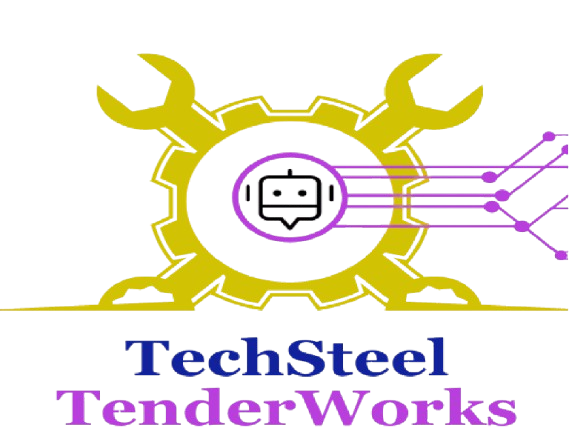Machine Learning - The Ultimate Game Changer for Construction Bidding Strategies
Construction bidding has traditionally relied on experience, intuition, and historical knowledge—valuable assets that nonetheless leave significant room for improvement in accuracy and competitiveness. Machine learning algorithms are revolutionizing this landscape, providing data-driven insights that enhance bidding precision while maximizing win rates for steel structure contractors.
The Complexity Challenge in Construction Bidding
Traditional bidding approaches struggle with the multidimensional complexity inherent in construction projects. Material price volatility, labor availability fluctuations, weather impact variables, and client-specific requirements create intricate optimization challenges that human analysis alone cannot fully address.
Machine learning excels in these complex scenarios, simultaneously processing thousands of variables to identify patterns and relationships that inform more accurate bid calculations. These algorithms analyze vast historical datasets to uncover insights that would be impossible to detect through traditional analytical methods.
Predictive Market Analysis and Pricing
Steel prices, labor rates, and equipment costs fluctuate based on numerous economic factors that traditional forecasting methods struggle to predict accurately. Machine learning algorithms identify leading indicators and predict price movements with superior accuracy by analyzing economic data, market trends, and industry-specific factors.
Commodity price prediction models analyze global economic indicators, supply chain disruptions, seasonal demand patterns, and geopolitical factors that influence steel pricing. These insights enable contractors to submit more competitive bids while maintaining healthy profit margins through accurate cost forecasting.
Labor market analysis through machine learning helps predict availability and pricing for skilled workers across different regions and project types. This capability is particularly valuable in tight labor markets where accurate resource planning determines project success.
Risk Assessment and Management
Machine learning transforms risk assessment from subjective evaluation to data-driven analysis. Algorithms evaluate project characteristics, client payment histories, site conditions, regulatory requirements, and historical performance data to calculate comprehensive risk scores for potential bids.
Payment risk analysis examines client financial stability, payment history patterns, and industry-specific payment behaviors to predict potential cash flow challenges. This analysis helps contractors make informed decisions about which opportunities to pursue and how to structure payment terms appropriately.
Technical risk assessment considers project complexity, site conditions, regulatory requirements, and team capabilities to identify potential execution challenges. Machine learning models can predict which project characteristics correlate with cost overruns, schedule delays, or quality issues.
Competitive Intelligence and Market Positioning
Advanced machine learning algorithms analyze competitor bidding patterns, win rates, pricing strategies, and market positioning to predict likely competitor responses to specific opportunities. This competitive intelligence enables more strategic bid positioning and improves win probability calculations.
Market share analysis helps contractors understand their competitive position across different project types, geographic regions, and client segments. This insight informs strategic bidding decisions about which markets to prioritize and how to position capabilities competitively.
Competitor behavior prediction models analyze historical bidding data to forecast competitor participation and pricing strategies for upcoming opportunities. This intelligence enables strategic bid timing and pricing decisions that maximize competitive advantages.
Dynamic Bidding Optimization
Machine learning enables dynamic bidding strategies that adapt to changing market conditions and project requirements. Rather than relying on static pricing models, these systems continuously learn from new data to refine bidding recommendations.
Real-time market adjustment algorithms modify bid calculations based on current market conditions, material price changes, and competitive dynamics. This adaptability ensures bids remain competitive and profitable even in rapidly changing market environments.
Portfolio optimization models help contractors balance risk and opportunity across multiple simultaneous bids. These algorithms consider resource constraints, market conditions, and strategic objectives to recommend optimal bidding strategies that maximize overall business performance.
Continuous Learning and Improvement
Machine learning’s self-improving nature ensures bidding accuracy increases over time. As algorithms process new project outcomes and market data, their predictive capabilities become more sophisticated and accurate.
Performance feedback loops analyze bid outcomes to identify factors that contributed to wins or losses. This analysis continuously refines the models’ understanding of what makes bids successful in different market conditions.
Machine learning transforms construction bidding from an art into a science, providing contractors with unprecedented analytical capabilities while preserving the strategic thinking that drives business success.
TechSteel TenderWorks harnesses machine learning power to revolutionize steel structure bidding for construction companies across Canada. Our advanced algorithms analyze market trends, competitive intelligence, and project characteristics to provide bidding recommendations that maximize win rates while maintaining healthy profit margins, positioning our clients as leaders in the competitive construction technology landscape.
